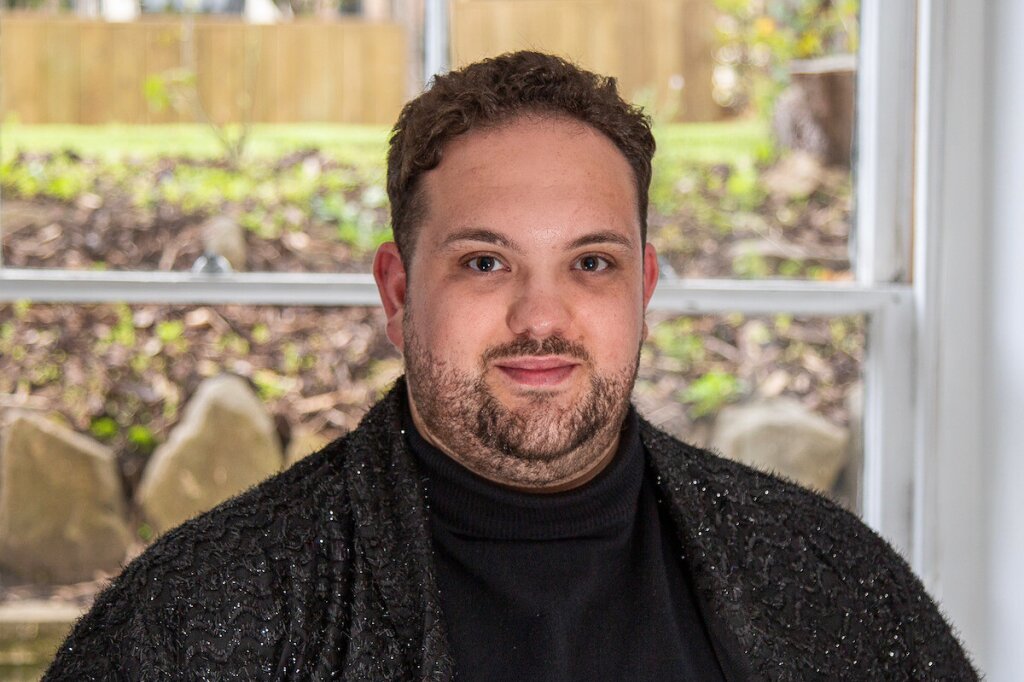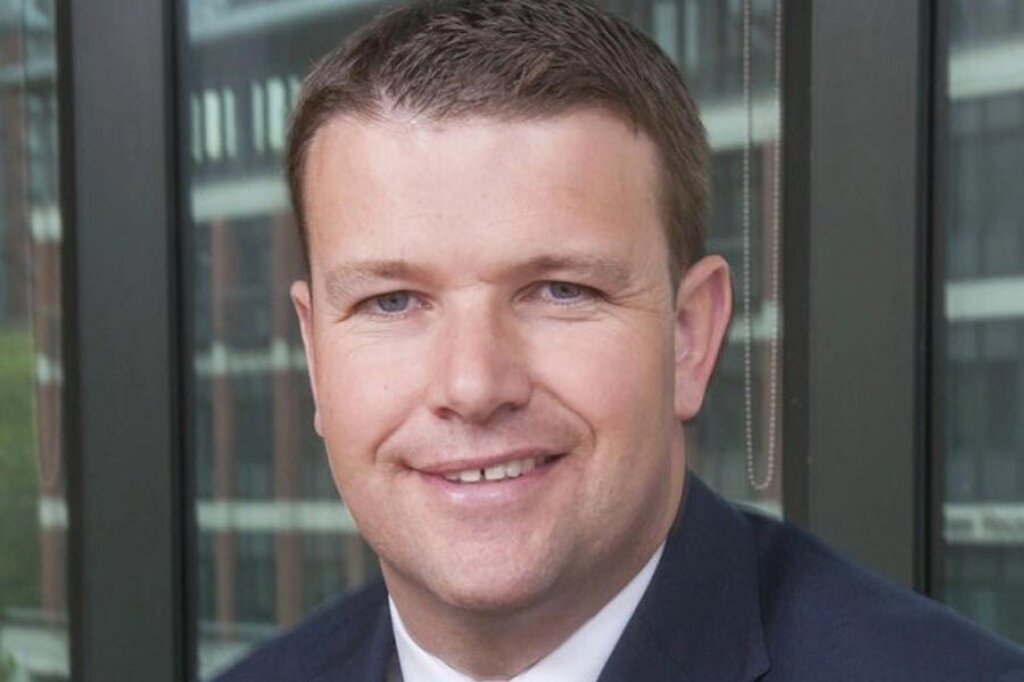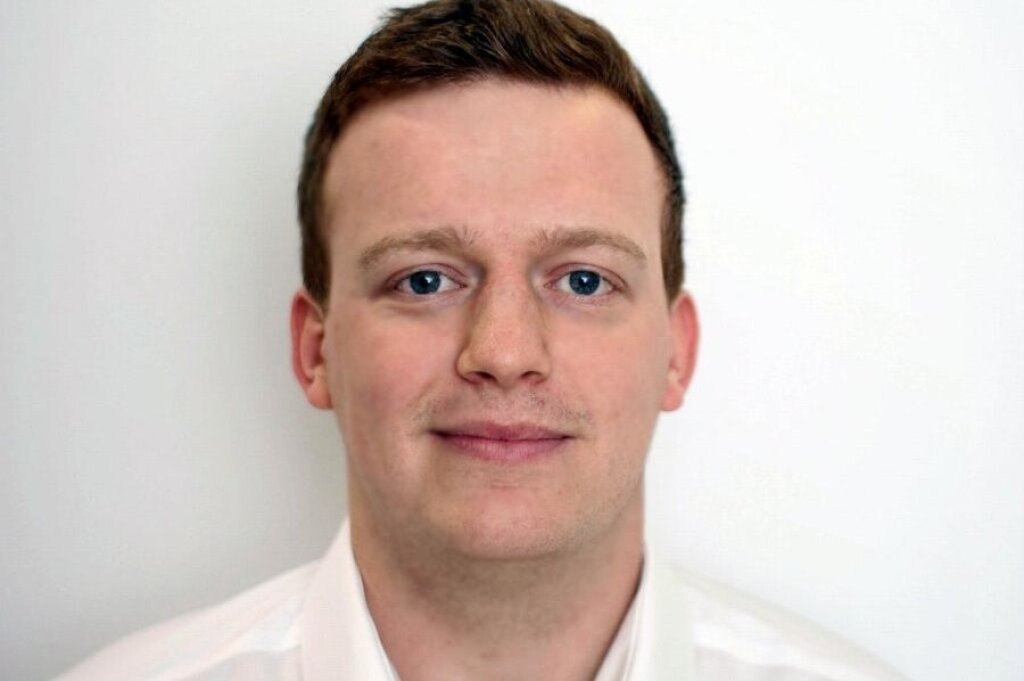In the space of two short years, Sam Marriott-Dowding has gone from zero to hero. He set up his business during the Covid pandemic, but after the initial flurry of activity, he didn’t know how to move forward. Mentor Satish Mathur gave him both guidance and confidence, and Sam’s award-winning agency now has the US in its sights.
Sam Marriott-Dowding has come a long way in a very short time. He graduated from the University of Groningen, in Holland, in 2019, and today, less than four years later, he is running an award-winning communications agency in the North East of England.
Marriott Communications won Agency of the Year at the Northern Enterprise Awards last year, and at the time of writing it is shortlisted for “Start-up business of the year” in the North East FSB Celebrating Small Business Awards 2023, and Sam himself is shortlisted for “Young entrepreneur of the year”.
“It feels incredible to receive such recognition when we are such a young creative agency,” said Sam. “Never in a million years did I expect to be where I am today. It’s been a challenging, but really special, journey.”
Accompanying him on that journey for almost a year was Be the Business mentor Satish Mathur, who, before setting up his own business consultancy 20 years ago, held senior financial, strategic and commercial roles in companies including Unilever, Inchcape and Prudential. A firm believer in improving business performance through people, he likens his mentoring role to “a business driving instructor” – giving people the tools, techniques and confidence to survive and thrive in the long term.
After graduating, Sam spent most of 2020, the first year of the Covid pandemic, locked down and unemployed. But a freelance communications job for a venture capital company gave him a taste for comms and for working for himself.
“I loved it,” he added. “It prompted me to start my own agency, but I never thought it would get this far so quickly.”
Hitting the wall
Marriott Communications offers a range of services, from PR and media relations, crisis communications and public affairs, to brand management and event management, to digital and social media marketing, and it has clients across sectors including fashion and retail, hospitality, entertainment, politics and the third sector. Sam runs the company on his own, supported by a network of trusted freelancers.
But a year in, after the excitement and effort involved in starting up his agency, and winning his first clients, Sam suddenly hit a wall.
“I felt a bit stagnant,” he recalled. “I was on my own, so I had all these crazy ideas but no-one to bounce them off. Also, I realised I had no strategy for winning new business, and no idea of how to grow.”
He found out about Be the Business from a friend of his father’s, who is a mentor.
“I was looking for a sounding board, a guide, someone to temper my ideas,” he revealed. An initial “chemistry meeting” with Satish convinced Sam he was just the person he needed.
“We spoke for an hour, over Zoom, and I told him about my business, and how I wanted it to grow, and we discussed how he might help,” said Sam. “By the end of it I felt really good, already supported. Despite his lack of PR experience, Satish was extremely knowledgeable – and he really ‘got’ my business and understood my vision, which for me was the most important part of the conversation.”
“I felt Sam needed someone to talk to as much as anything else, and I tried to steer him in the right direction.”
Satish Mathur
A spur to action
The pair embarked on a 12-week mentoring programme. Every week Satish would set Sam tasks and a timescale for completing them. “It was really helpful: it gave me the kick I needed to push forward,” he commented. The tasks were components of an overarching growth plan, and included a business plan, a sales strategy and a marketing strategy.
Implementing the different pieces of the jigsaw, to a tight timescale, while single-handedly running the business, was challenging, Sam admitted, “but the rewards definitely outweigh those challenges.”
He explained: “I had to move really fast: if I’d delayed any longer, I’d be stuck doing the same processes, which weren’t working, and I would never have grown. I’d been so focused on my client work that I was neglecting the internal governance of the business. Having a ‘to-do’ list made me tackle tasks I’d put off for many months.”
Having the right governance structures in place allowed Sam to work on his business, rather than in it, and by the end of the 12-week programme he had won three new clients.
But his mentor also helped him become more efficient in his business development.
Satish added: “In one of our early conversations, Sam told me that he was going for contracts and nothing came of them. I talked to him about the SCOTSMAN concept [Solution, Competition, Originality, Time Scales, Size, Money, Authority, Need], which is essentially a tool for rating a lead or potential target. It helps you be strategic in the business you go for, rather than having a scattergun approach.”
There was nothing intrinsically wrong with the pitch documents Sam was sending, said Satish, but he was targeting prospective clients that were inappropriate for a company of Marriott’s size and stage of development.
“I’ve helped him move him into sectors, industries, locations and size of organisation that are far more likely to be successful for him.”
Satish’s advice was invaluable, said Sam. “It forced me to work out how to engage with clients that I really wanted to work with. I became proactive, rather than reactive.”
It also allowed him to develop a sales pipeline: “I didn’t have one until then; to be honest, I didn’t even know what one was.”
“Satish’s advice forced me to work out how to engage with clients that I really wanted to work with.”
Sam Marriott-Dowding
Looking to the future
Satish is full of admiration for his young mentee.
“Sam is very bright, creative, articulate, determined, driven, hard-working and focused,” he said. “But, like many young and inexperienced business people, he didn’t really know what he needed to move his business forward. I felt he needed someone to talk to as much as anything else, and I tried to steer him in the right direction. You don’t tell people what to do; you ask questions to make them think.”
Business is going well – “We are really busy,” revealed Sam. His biggest immediate challenge is the cost-of-living crisis: when times are tough company marketing budgets are the first to be squeezed. To mitigate the potential threat to his agency, he has developed two new services – “affordable” communications packages for startups and small businesses, and a range of training guides.
While he continues to focus on growing the UK business, he also plans to start working with the Department for International Trade towards the end of the year with a view to expanding into the US.
Benefits for all sides
Satish has been mentoring small business people, and charities, for many years, and enjoys using his business and marketing expertise to help “individuals, organisations and, by extension, the country.” As he said, small businesses are the engine of the economy, but they usually lack the money to spend on high-level advice.
“I’ve always been a team player – in sport as well as business,” he commented. “But you have a personality as well, and a big part of my personality is to want to help others.”
He is passionate about growth, and believes many in the UK are too concerned with cost-cutting – under the guise of providing ‘value for money’. “People cut and cut until there is nothing left,” he said. “But you have to take calculated risks in order to grow, and investment is part of that. I help people understand and manage those risks.”
Sam recommends Be the Business mentoring to others. “Starting a business is scary, so to have the support and reassurance of very senior people who have done it all before is really amazing. And it’s all free!”
And there was an unexpected outcome of Sam’s mentoring. Satish introduced him to the Oxford British Heart Foundation business board, which he chairs – and they invited Sam to sit on the board too. “That was such a surprise, and it’s going to be a brilliant learning experience,” Sam concludes.
Headline takeaways
If you’re patient and interested, mentoring is very rewarding.
Don’t tell mentees what to do; ask them questions that make them think.
Don’t talk down.
Keep an open mind: you might not instantly connect with someone, but that doesn’t mean they can’t help you.
Be honest: don’t inflate numbers or say you’re doing something if you’re not, because your mentor won’t be able to help you properly.
Being passionate about your business helps to build a really strong connection with someone who’s going to support you. If you miss a meeting, or arrive late, or have a ‘don’t care’ attitude, it won’t work.



